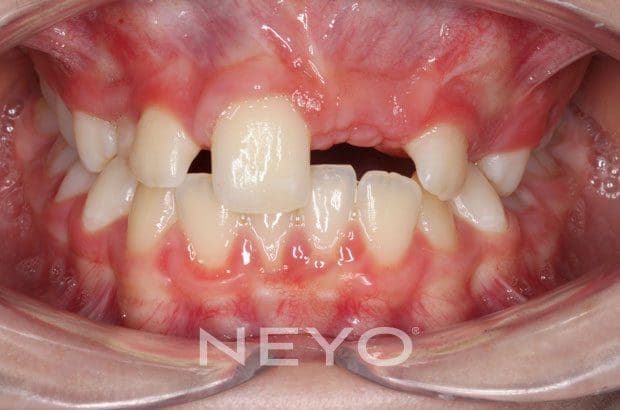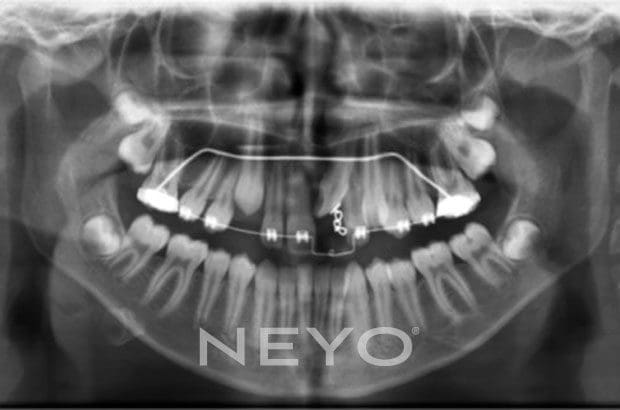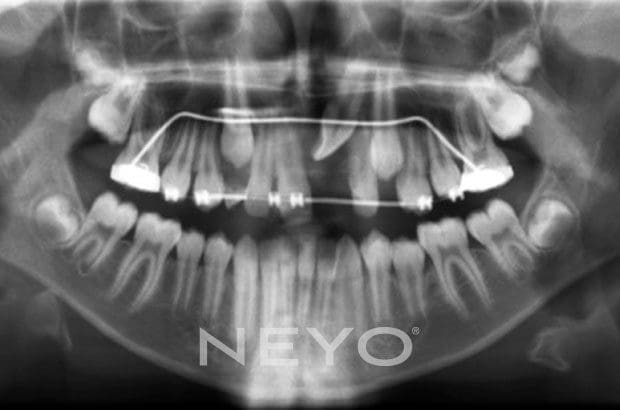Impacted teeth are teeth that fail to fully erupt into their normal position. It can affect any of the teeth, but most commonly wisdom teeth and upper canine teeth become impacted.
Teeth that are Impacted can cause serious problems to the adjacent teeth, and ignoring an impacted tooth could eventually lead to loss of the impacted tooth, and sometimes even the teeth surrounding the impacted tooth.
While your dentist may suspect teeth that have become impacted after clinical examination, x-rays are usually necessary to confirm the presence and severity before making a treatment plan.
Signs of this condition include a tooth that appears to be missing, a baby tooth that remains in the mouth, a tooth that partially erupts into the mouth but stops, and sometimes, especially in the case of wisdom teeth, pain and swelling can indicate an impacted tooth.
Teeth that have become impacted should be treated as soon as possible to avoid complications and ensure optimal dental health. If you suspect you have impacted teeth we would like to see you to discuss your treatment options.
What are the causes?
Overcrowding is the most common reason that teeth become impacted. If there is not enough space for the tooth erupt into, it will get stuck. This can happen if the jaws are too small to accommodate all of the teeth. It can also happen if a baby tooth is extracted in early childhood and the space closes.
Ectopic teeth are teeth that develop in the wrong place. This happens most commonly in upper canine teeth for reasons we do not fully understand.
What happen if you don’t treat impacted teeth?
Impacted teeth can cause a range of problems, including damage to adjacent teeth, infection, and tooth decay. They can also create an abnormal bite, which can cause jaw pain, headaches, and other uncomfortable symptoms. In some cases, impacted teeth can even lead to the development of cysts.
What treatment is needed?
The most common orthodontic treatment for impacted teeth is braces. Braces are used to move teeth into their proper position gradually. With time, the braces will help pull the impacted tooth into its correct position. Braces are typically used for patients who are still growing, and treatment can last anywhere from 18 months to 2 years.
In some cases, the impacted tooth may need to be extracted if it cannot be moved into its proper position with braces or other orthodontic treatments. Extraction is usually reserved for more severe cases of impaction or where the impacted tooth is causing pain or infection.
Sometimes the impacted tooth may be partially exposed through a surgical procedure. This procedure involves lifting the gum tissue to expose the tooth, and a bracket or chain is then attached to the tooth. This allows your orthodontist to apply pressure to the tooth and guide it into its correct position.
At what age should crooked teeth be treated?
The best time to treat teeth that have become impacted is early on, before they cause significant problems. Your dentist or orthodontist can identify impacted teeth through an examination and x-rays. Early diagnosis might mean more conservative approaches are possible.









